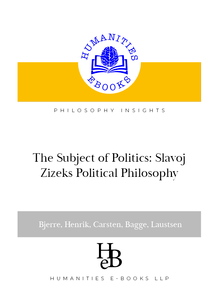Giorgio Agamben: Political Philosophy , livre ebook
118
pages
English
Ebooks
2021
Obtenez un accès à la bibliothèque pour le consulter en ligne En savoir plus
Découvre YouScribe en t'inscrivant gratuitement
Découvre YouScribe en t'inscrivant gratuitement
118
pages
English
Ebooks
2021
Obtenez un accès à la bibliothèque pour le consulter en ligne En savoir plus
Publié par
Date de parution
11 janvier 2021
Nombre de lectures
1
EAN13
9781847603371
Langue
English
Publié par
Date de parution
11 janvier 2021
Nombre de lectures
1
EAN13
9781847603371
Langue
English














